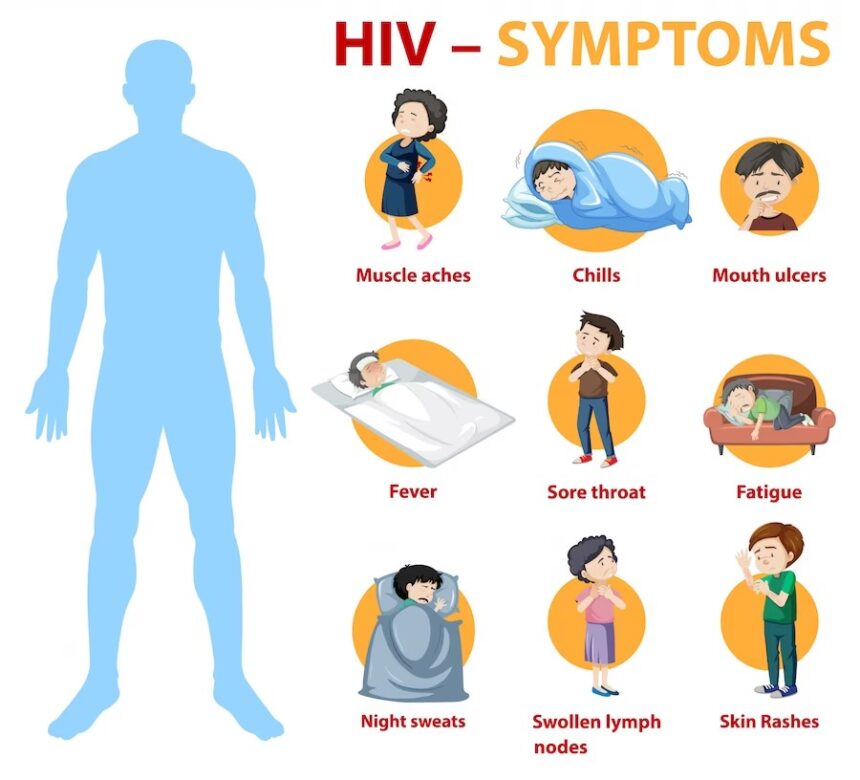Living with HIV can present numerous challenges, both physical and emotional, for individuals in South Africa. With a significant portion of the population affected by the virus, it is crucial to address the issues surrounding disclosure and establish strong support networks. In this article, we will explore the importance of disclosure, the challenges faced by those living with HIV, and the support networks available in South Africa.
- Understanding the Importance of Disclosure: Disclosure refers to the act of revealing one’s HIV status to others, such as partners, family members, friends, or employers. While disclosure is a deeply personal decision, it plays a vital role in managing the virus and seeking support. Here are a few reasons why disclosure is important:a. Access to Medical Care: Disclosing HIV status allows individuals to seek appropriate medical care and treatment. Regular monitoring, adherence to medication, and access to healthcare services are crucial for managing the virus effectively.b. Prevention and Support: Disclosure contributes to preventing the spread of HIV by promoting open discussions about safer sex practices and encouraging testing among partners. It also helps individuals receive emotional and social support, which can improve their overall well-being.c. Reduced Stigma: Open disclosure challenges the stigma associated with HIV and promotes acceptance and understanding. It allows society to move towards eliminating discrimination and creating a supportive environment for those living with HIV.
- Challenges Faced by Individuals Living with HIV: Living with HIV can bring about various challenges, both on an individual and societal level. In South Africa, where HIV prevalence is relatively high, these challenges can be particularly significant. Some common difficulties faced by individuals living with HIV include:a. Stigma and Discrimination: HIV-related stigma persists in many communities, leading to fear, judgment, and social isolation. Discrimination can affect relationships, employment opportunities, and overall quality of life for those living with HIV.b. Emotional Well-being: Receiving an HIV diagnosis can lead to emotional distress, such as anxiety, depression, and feelings of guilt or shame. Managing these emotions while navigating daily life can be overwhelming.c. Disclosure Dilemma: Deciding whom to disclose one’s HIV status to can be complex. Fear of rejection, gossip, or potential harm may prevent individuals from sharing their status with others, leading to a sense of isolation.d. Access to Support: Limited access to support networks and resources can make it challenging for individuals to cope with the physical, emotional, and social aspects of living with HIV.
- Support Networks in South Africa: South Africa has made significant progress in establishing support networks for individuals living with HIV. These networks provide valuable resources, guidance, and community support. Here are some key support networks available:a. Treatment and Care Centers: South Africa has a robust healthcare system that provides comprehensive HIV treatment and care services. HIV treatment centers offer medical care, counseling, and support to individuals living with HIV.b. Support Groups: Support groups bring together individuals living with HIV to share experiences, provide emotional support, and exchange information. These groups foster a sense of belonging and reduce the sense of isolation often experienced by people living with HIV.c. Non-Governmental Organizations (NGOs): Numerous NGOs in South Africa focus on HIV/AIDS awareness, education, advocacy, and support. These organizations provide a range of services, including counseling, testing, treatment adherence support, and community outreach.d. Online Platforms: Digital platforms and online communities provide a space for individuals to connect, share information, and find support. Websites, forums, and social media groups dedicated to HIV support can be valuable resources for those seeking anonymity or remote access to support.
- Empowering Individuals and Changing Perceptions: To further support individuals living with HIV, it is essential to continue empowering them and changing societal perceptions. This can be achieved through:a. Education and Awareness: Promoting accurate information about HIV transmission, prevention, and treatment helps dispel myths and misconceptions. Comprehensive sex education in schools and community awareness campaigns play a vital role in educating the public.b. Legal Protection: Strengthening legal frameworks that protect the rights of individuals living with HIV is crucial. This includes legislation against HIV-related discrimination and ensuring confidentiality in healthcare settings.c. Addressing Stigma: Community initiatives that challenge HIV-related stigma and discrimination are vital for creating an inclusive and supportive environment. Encouraging empathy, respect, and understanding can contribute to reducing stigma and promoting acceptance.
In conclusion, living with HIV in South Africa comes with unique challenges, but individuals can find support through disclosure and establishing strong support networks. By promoting open dialogue, addressing stigma, and expanding access to support services, society can create an environment where those living with HIV can lead fulfilling lives with dignity and acceptance.










